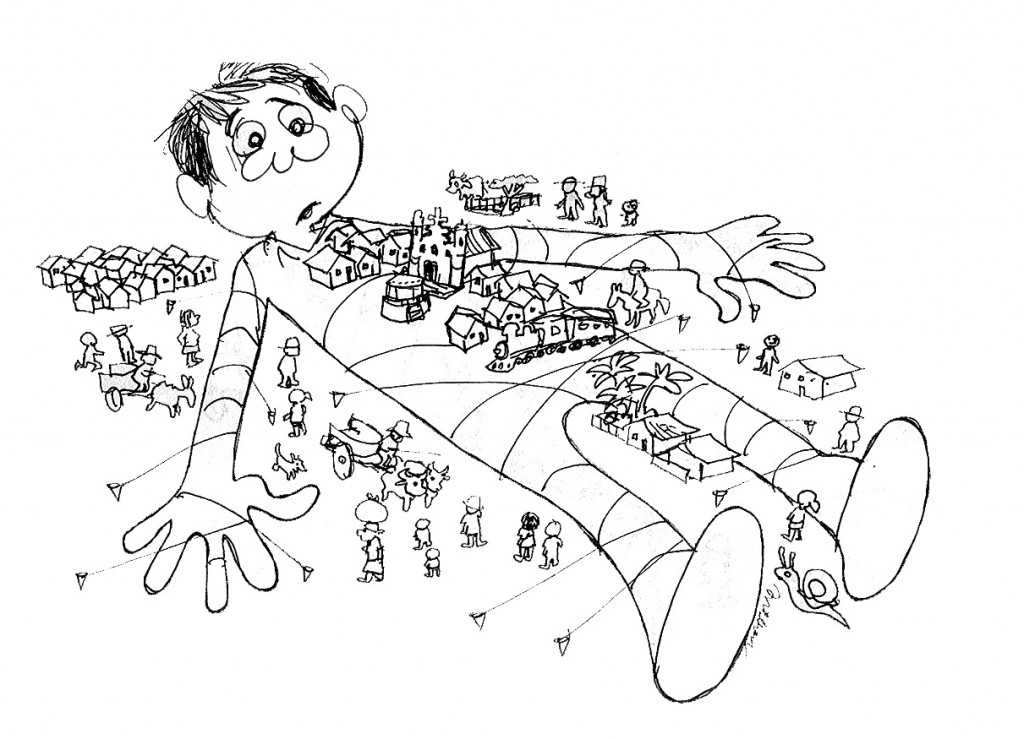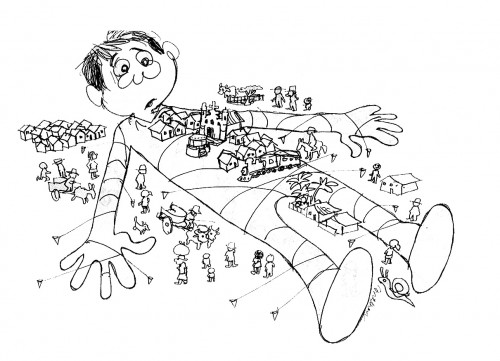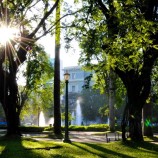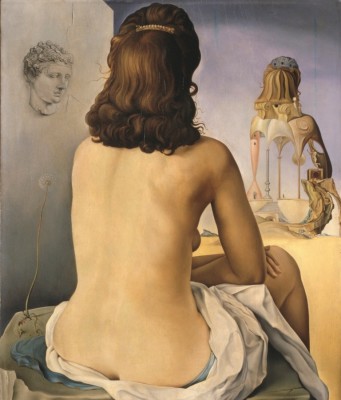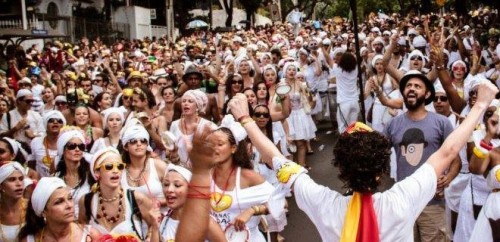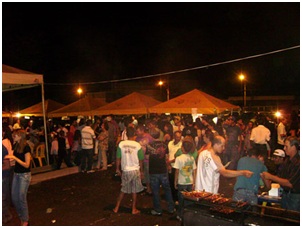In the second to last decade of the previous millennium, after undertaking jobs in several construction sites owned by large construction companies in isolated areas, I had a good amount of money saved up and gathered quite a bit more from the sale of some properties that I had acquired in the capital city. And so I decided to return to my small hometown in the interior of the country.
Happy-go-lucky, I would boast: now I will live life; simple and good people will greet me wherever I go; with my experience, I will be friends with all the neighbors; I’ll participate in community life; we’ll build one of the most beautiful cities one can live in.
From the start, I preferred to rent a house until I got to know the town a little better, the place I had left behind me a quarter of a century ago. Right away I was startled by the rental price they asked for. How could I refuse? There were not many houses available. “I was lucky,” my relatives told me “to find such a good house at my disposal.” Then I needed a housemaid, because my son was newly born by only a few days. The people that showed up all asked for three minimum salaries. In this case, because the property was contingent on having a housekeeper, I preferred to hire a girl from the capital who worked for half of what the local labor force was asking for.
I could list dozens of services and materials for which I incurred prices equivalent to double what I was used to paying in the capital. I bought a commercial establishment and started training the salespeople. I selected girls who were all high school graduates, but spoke such a precarious Portuguese that I felt discouraged to train them in customer service.
On the other hand, it was raining clients like cats and dogs in my establishment asking for financial contribution for almost every kind of cause imaginable. Suffice it to say that it was the first year of a Carnival that later became famous all over Brazil and which I was one of the largest funders of the event.
The town, by virtue of the adjoining dirt roads, was covered in a layer of fine red dust. In addition to dirtying the house, objects and clothes, it made people fall ill. When I sought a doctor to attend to my son, who continuously got the flu, I could not find one pediatric specialist in town. The doctors were most loved and renowned by the townspeople, not for their heroic deeds of healthcare while lacking in resources, but either for their natural simplicity or their parts played in the local bands of binge drinkers.
When grocery shopping for the house, I was subject to the few existing products and brands available. I still remember the times when I went out looking for fruits, roots and vegetables and having people laugh at me as they threw in my face: “Get real! You’re in the interior, not the capital.”
Despite having access to the same information channels that we have in the capital, there was no one around to exchange ideas with. The cinema had ceased to exist not long ago, and theater – just forget about it. Music – we could still listen to the local singers and instrumentalists of reasonable quality according to those simple people. I remember that in another time and place, the great João do Vale was introduced to me in a bar, along with some cachaceiros (people who drink cachaca, a hard alcohol made from sugar cane juice) who identified themselves with him.
I hosted a barbecue to celebrate the christening of my son. I managed to get my old friend Alisson and his father, who was in special attention, to come up and visit. I tried to invite over some acquaintances of mine, but I had to circumvent around the famous TV soap opera programing schedules and chose more convenient times of the day. I was able to make friends with a young girl with whom I identified myself with in the pursuit of the valorization of local arts and crafts. We talked with the Mayor and some town councilors, failing to get any understanding or support.
It all reminded me of the case of a former professor of Sorbonne who also had the dream of living in the countryside upon his retirement. After going through all that I went through and much more in his home country of France, he returned to Paris where he wrote the book: “La mer de la provence,” in which he used a double meaning of the term to criticize the sweet illusion of returning to one’s origins.
I annulled the rent contract and gave away or sold all that I had acquired for living there and returned to the capital. Soon after, my younger brother, with his malicious chuckle, told me a story to reinforce my point of view on the new people inhabiting the town where I was born.
According to him, Enok, an excellent town barber of a relatively larger town was passing through that locale when he met a beautiful girl from the town, Neuza, and soon after decided to ask her hand in marriage. The marriage was simple, but much competed for as the girl’s brother was a politician and the marriage feast promised to be bountiful for the guests.
Enok’s status moved up in the town and his barbershop was soon a top scale place. A sympathetic young lad! Soon after, someone came up with the idea that he would be a good candidate for town councilor, in order to bring votes to the interested political party. They pried so much at the vanity of the outsider that he ended up accepting the proposal.
To be certain of victory, which depended on attaining approximately 200 votes, he cut for free the hair of every client who promised to vote for him. He would write down the name of each person.
On the eve of his election, his list tallied almost three hundred “guaranteed” votes.
He then, in its purity and humility, affirmed to his wife: “- look, Neuza, I have more than enough votes to be elected. So you vote on your brother and I’ll vote on Chiquinho Azul who is my best friend in town.” The two were of another political party, in opposition.
“Only you to be so good,” said the wife.
Sunday Election Day came around and, on the same night, the counting of the ballots.
Enok did not have one vote.
The next day, Monday morning, he opened his shop as usual and started to pack up his barber gear, instruments, mirrors, creams and lotions. A resident walking by noticed the unusual movement in the shop and asked:
“Hey Enok, what you are doing? Changing the shop’s location?
And Enok in near depression:
“I’m changing towns. Never seen a folk as phony as in this town.” And he returned to his hometown.
My brother didn’t mention whether he took his beautiful wife with him who was a native of the town…
Related Articles


